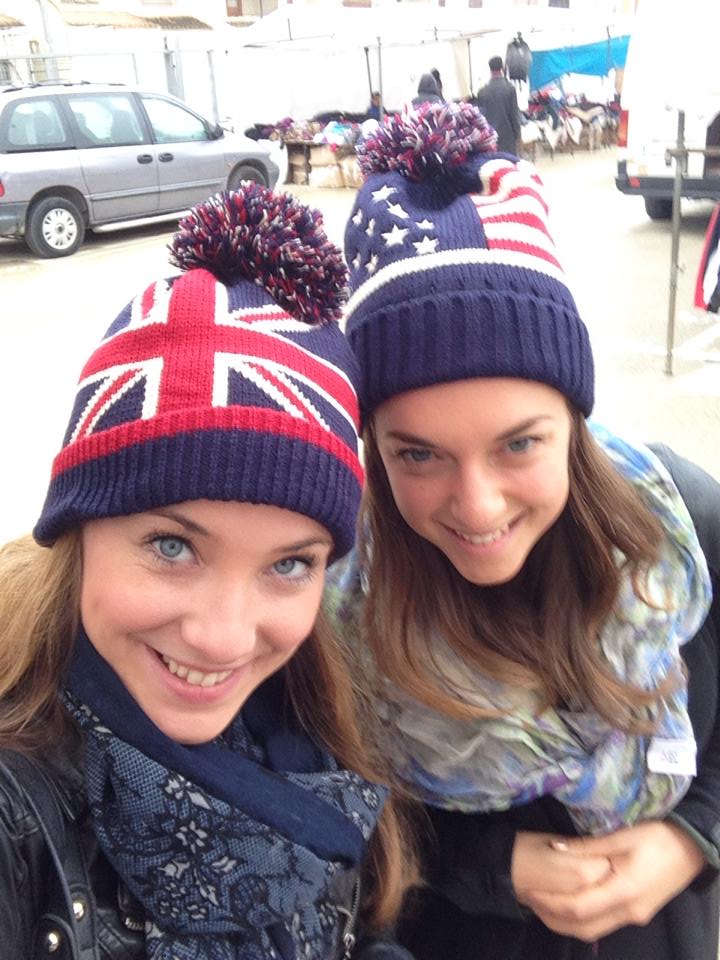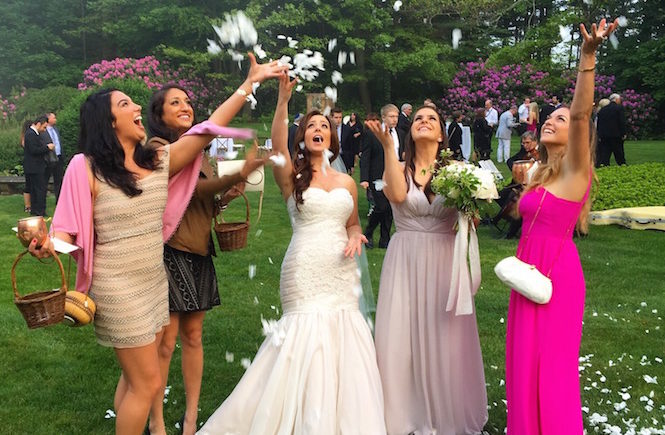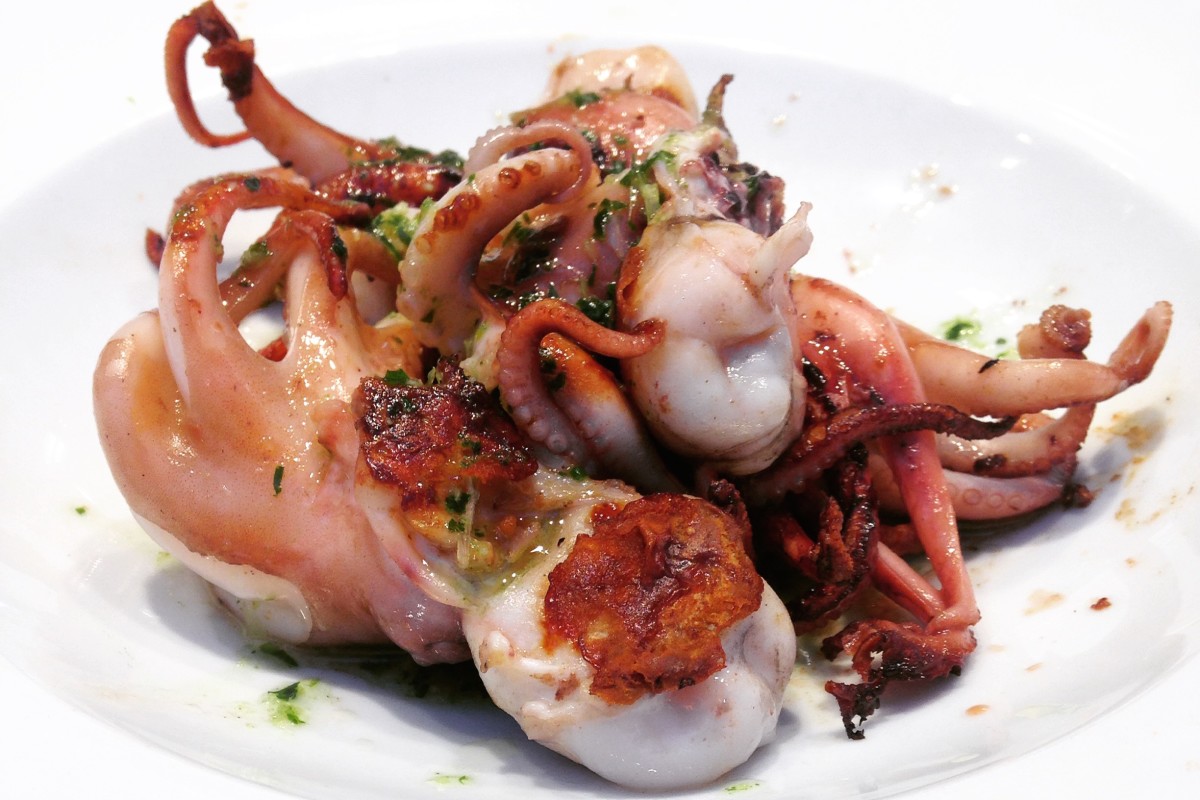If you’ve ever fancied living with a British person, you’ll have to get used to talking differently. You can start by learning some British words Americans don’t use. Some are slang that only make sense in context, while others are American words used totally differently. My inspiration for this post is clearly my lovely English housemate, Jessica.
My top 50 favorite British words
1. Fancy – Fancy holds it’s typical meaning for something high-end, but more typically, it is used to describe something you want to / or have to do. It can also be used to say you are physically attracted to someone, like a celebrity or the new guy in town.
For example: “Do you fancy going to the beach this weekend?” or “I fancy Leonardo DiCaprio.”
2. Mate – Direct translation: Friend. This is used to describe a close friend, buddy, pal, girl, or guy you just “get on with”.
For example: “My best mate and I went to the chippy after school.”
3. Chippy – A fish and chips shop. Basically the most stereotypically British of foods. Battered fish and deep-fried potatoes eaten all over the UK. See example above.
4. Chips – Sure, sure, we all know what chips are, right? WRONG! Chips are french fries if you are in the UK.
5. Crisps – As you could probably tell from number four, if chips are fries, crisps are chips. Bagged potato chips, homemade potato chips, basically anything addicting and salty, is called a crisp.
6. Jacket Potato – As you can see by now, British people really like their potatoes. A jacket potato is a baked potato. It can be served plain or with the works.
7. Sunday Roast – A traditional British family meal that is served on Sundays. It typically consists of roasted meat, potatoes, Yorkshire pudding, stuffing, vegetables, and the most important ingredient, gravy. Gravy goes on everything in the UK.
8. Tea – Once again, one of those words you thought you understood, but in the UK you may find yourself utterly confused. I lived with my roommate for over a month before I understood what she meant by tea. Of course, tea holds it’s usual definition for an afternoon cup of tea and crumpets, but it can also refer to dinner or supper.
For example: “What shall we have for tea this evening?”
9. Takeaway – The US version of takeout. Where you get food to go.
10. Tea towel – A towel or cloth used to dry dishes or utensils in the kitchen. A dishcloth in America.
11. Flannel – We use this in America to describe a shirt or a style of shirts that resemble farmer attire. In British English, a flannel is a face cloth or wash cloth.
12. Toilet – Of course, we all know what a toilet is. Brits use the word toilet not only to describe the object we squat on to have a wee but also to describe the room in which the toilet is found. In America, we would use bathroom or restroom to describe this place.
For example: “I need to have a wee. Can you show me where the toilet is, please?”
13. Have a wee – To go pee or to alleviate your bladder in the classiest of terms. See above.
14. Flat – An apartment building or your floor of an apartment building.
For example: “Do you want to come over to my flat before dinner tomorrow night?”
15. Lead – Leash in America. Instead of keeping a dog on a leash, British people say their dog is on a lead.
For example: “Dogs must be on a lead in the park.”
16. Dodgy – This is a slang term used to describe something wrong, illegal, or just odd. It can describe anything from a place, a person, or a food. Most often I have heard this to describe something food-related.
For example: “Chloe had a dodgy kebab last night.”
17. Car Park – This is pretty easy to comprehend. A car park is a parking lot or a parking garage.
For example: “I parked my car in the car park this morning.”
18. Bonnet – The hood of a car is called a bonnet. I guess it makes some sense, since a bonnet is a hat, but really, that’s just too sweet for a car.
For example: “Open the bonnet, we need to check the oil.”
19. Boot – As you could probably guess from number ten, a boot is the trunk of a car.
For example: “Throw everything in the boot, there’s not enough space in the car.”
The cutest of all the British words Americans don’t use. So much better than trunk, don’t you think?
20. Petrol – Gasoline or “gas” is called petrol. British people even refer to a gas station as a petrol station.
For example: “We’re almost out of petrol, we’ll have to stop at the petrol station.”
21. Rubbish – Waste, trash, garbage, utter disbelief in something, or something you think is not good.
For example: “Can you take out the rubbish, please?” or “Don’t talk such rubbish!”
22. Brilliant – Definitely a word any English speaker is familiar with, but the British usage is different. Most often used to describe something that is exciting, awesome, or wonderful.
For example: “Wow! You are moving to Spain, that’s brilliant.”
23. Hoover – In America, Hoover is a vacuum cleaner company. In British English, hoover is the noun for a vacuum and also the verb for vacuuming.
For example: “Where do you keep your hoover? We need to hoover the floor.”
24. Quid – Just as we use buck for the American dollar, British people use quid for the British pound.
25. Advert – An advertisement on the subway, an ad in the newspaper, or a commercial on television, are collectively referred to as adverts in British English.
26. Anti-clockwise – Counterclockwise in America. The direction opposite clockwise.
27. Cash machine – ATM or automated teller machine in America. Where we go to take out money.
28. Fire brigade – Firefighters
29. Ladybird – A red and black spotted flying insect that signals good luck if it lands on you. Yes, I am talking about a ladybug in American English. Not sure why the Brits think it’s a bird…
30. Motorway – Highway or freeway in the U.S.
31. Trainers – Trainers are British for sneakers, tennis shoes, or athletic shoes.
32. Jumper – A pullover or a sweater. Basically, something British people wear ten months out of the year because it is always rainy and cold.
33. Knickers – A naughty term for women’s underwear in America, but the typical term in the UK.
For example: “Don’t get your knickers in a twist.”
34. Nail varnish – Nail varnish is nail polish.
35. Clever – Clever is used to describe intelligence and wit. Rather than saying that a student is very smart, intelligent, or bright, a Brit would say that the student is very clever.
36. Nob – Used to describe someone who you think is annoying or find to be dumb. A classic insult that directly translates to “penis”.
For example: When your friend does something shitty you reply, “Don’t be a nob.”
37. Sarky – An abbreviation for sarcastic.
For example: “Why are you being so sarky today?”
38. Peckish – Moderately hungry
For example: “My stomach is growling, I think I’m a bit peckish.”
39. Postbox- a mailbox
40. Rubber – In America, this is a condom. In British English, this is a pencil eraser. Yes, this was quite shocking my first day in the classroom.
For example: “I need to erase my mistake, can I borrow your rubber, please?”
41. Sellotape – In the U.S., this is scotch-tape. Clear, plastic, transparent adhesive tape.
42. Zebra crossing – A crosswalk in the U.S.
43. Chemist – Direct translation: Pharmacy. Chemist sounds like a scary man behind a counter mixing up a concoction, but apparently, in England, it is a safe place to go for your medications.
44. Lorry – The first ten times I heard this word I assumed we were talking about a girl named Lori. Wrong. A lorry is a truck in the UK.
45. Pulses – After reading the nutrition section of a third graders textbook countless times, I could not for the life of me understand what food pulses could possibly be. BEANS! Pulses are legumes.
This might be the strangest of all the British words Americans don’t use. Just why not call them beans?
46. Have a shower – This is just one of the many instances where instead of the word “Take” Brits use the word “Have”. Take a shower, take a call, and take a break, are just three examples.
For example: “I’m sweaty from my run, I think I’ll have a shower now.”
47. She’s called – Instead of saying “her name is” in the UK they say “she’s called” to tell you someone’s name.
For example: “This is my mom, she’s called Barbara.”
48. Lovely – Of course we all know this word, but honestly, no one in America uses it. Lovely can be used to describe an event, a location, an experience, and even a person.
49. Quite, rather, a bit – These are three words I absolutely cannot stop using ever since I lived with an English person. They are constantly thrown in wherever they can kind of, sort of, maybe, be appropriate. They often take place of “like” in American English.
For example: “I’m quite certain that it is rather unnecessary to use these words more than a bit.”
Of all the British words Americans don’t use this set might be my favorite. I’ve started using these all the time and get made fun of every time I’m back home. I just can’t help replace all my ‘likes’ with something a bit more fun.
50. Zed – And as appropriately as possible, the last letter of the alphabet “Z”. Pronounced “zee” in the U.S. but “zed” in the UK.
And that’s it. My favorite, or shall I now say ‘favourite’, British words Americans don’t use.



